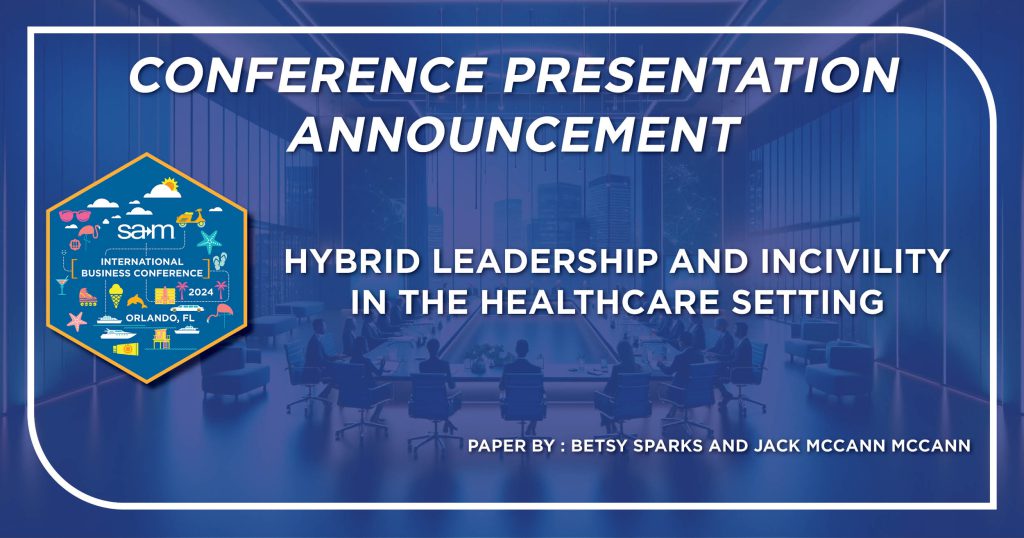
The programming committee for the 79th Annual SAM International Business Conference is pleased to announce the acceptance of the presentation, Hybrid Leadership and Incivility in the Healthcare Setting by Betsy Sparks and Jack McCann.
In the fast-paced and often high-pressure environment of healthcare, the role of leadership cannot be overstated, particularly when it comes to fostering a positive workplace culture. With the rise of incivility in workplaces, including healthcare settings, the search for effective leadership styles has become more critical than ever. A recent academic study sheds light on this pressing issue, offering valuable insights for healthcare leaders striving to mitigate incivility among their teams. This groundbreaking research is set to be presented at the upcoming SAM International Business Conference, drawing attention from healthcare professionals and leadership scholars alike.
The study in question embarked on an exploration of nine different leadership styles, as well as hybrid approaches, to ascertain their impact on workplace incivility within healthcare settings. The researchers employed two well-regarded tools in their investigation: the VanSimpco Leadership Survey and Chung et al.’s Work Group Incivility scale. Through a comprehensive survey of 174 healthcare employees, the study aimed to uncover which leadership approaches could effectively reduce instances of incivility among staff.
The findings of this research are both intriguing and instructive. Among the various leadership styles examined, transformational leadership and a hybrid style combining autocratic and transformational elements emerged as significantly effective in curtailing incivility. Transformational leadership, known for its focus on inspiring and motivating employees to achieve their full potential and embrace change, appears to foster a more respectful and collaborative workplace environment. Similarly, the hybrid autocratic-transformational style suggests that a balanced approach, combining directive leadership with transformative strategies, can also contribute to reducing negative interactions among healthcare employees.
The presentation of this paper at the SAM International Business Conference promises to spark important discussions on leadership in healthcare. By highlighting the effectiveness of specific leadership styles in combating workplace incivility, the research offers practical guidance for healthcare leaders seeking to cultivate a positive and respectful work culture. As healthcare organizations continue to navigate the complexities of providing care in a demanding environment, the insights provided by this study could prove instrumental in enhancing employee relations and, ultimately, patient care.
The implications of this research extend beyond the healthcare industry, touching on broader themes of leadership and organizational behavior. It underscores the importance of adaptive and people-focused leadership styles in addressing contemporary workplace challenges. Attendees of the SAM International Business Conference are eagerly anticipating the presentation of this paper, which not only contributes to the academic discourse on leadership but also offers tangible solutions for improving workplace dynamics in healthcare settings.
Join us online or in person at SAMIBC 2024 and see this great presentation and many more March 19 – March 23, 2024. For registration information visit www.samnational.org/conference.
